
Hard Times: - play adaptation
¥40.79
Brilliant adaptation of Charles Dickens biting novel H ard Times . Dominated by Gradgrind and Bounderby, Coketown’s prosperity is built on the cotton mills where thousands of men and women slave away for long hours and little pay. Gradgrind’s obsession with material progress damages his children Louisa and Tom, leading to scandal and disaster. ‘Hard Times’ celebrates the importance of the human heart in an age obsessed with materialism. Circus, music, and dark comedy all go into the rich mix of this truly Dickensian theatrical tale. Charles Way has written over 50 plays, specializing in writing for children, young people and family audiences. His plays are performed worldwide. He has won several major awards - A Spell of Cold Weather won the Writers Guild best children's play award in 2001 and in 2004 his play Red Red Shoes won the English Arts Council best children's play award. In Germany, his play Missing won the Children's Theatre prize and in the USA? he was nominated for a Helen Hayes Award. He was commissioned by the National Theatre to write Alice In The News , which children all over Britain have performed. He has also written many plays for radio, and a TV poem for BBC 2, No Borders , set in the Welsh borders, where he lives and has spent most of his creative life. ? " A stellar adaptation by Charles Way, moving, thoughtful and wonderfully drawn’.??????????????????????? What’s on Stage ***** ‘Way gives real depth to characters, replaces Dickens’ sentimentality with warmth and his censoriousness with moral indignation’. ?????????????????????????? The Independent ***** ‘daringly restructures Dickens’ plot, yet sticks to the motto of his lisping ringmaster Mr Sleary: “People mutht be amuthed.”’ ????????????????????????????????????????????The Observer ?

Vigyázz, mit kívánsz!
¥45.53
RUINS OF ANCIENT CITIES, WITH GENERAL AND PARTICULAR ACCOUNTS OF THEIR RISE, FALL, AND PRESENT CONDITION. - BY CHARLES BUCKE This Volume contain these cities; Abydos, Abydus, ?gesta, ?ina, Agrigentum, Alba Longa, Alcantara, Alexandria, Amisus, Antioch, Argos, Ariammene, Arsinoe, Artaxata, Artemita, Athens, Babylon, Balbec, Byzantium, Cairo (Old), Cann?, Capua, Carthage, Catanea, Chalcedon, Ch?ronea, Corduba, Corcyra (Corfu), Corinth, Ctesiphon, Delphos, Ecbatana, Eleusis, Elis, Ephesus, Gerasa (Djerash), Granada, Gnidos, Heliopolis, Herculaneum, Hierapolis, Isfahan, Italica, Jerusalem, Laced?mon, Or Sparta, Laodicea, Leuctra, Magnesia, Mantinea, Marathon, Megalopolis, Megara, Memphis. Of chance or change, oh! let not man complain;Else shall he never, never, cease to wail;For from the imperial dome, to where the swainRears his lone cottage in the silent dale,All feel the assault of fortune's fickle gale.Art, empire, earth itself, to change are doom'd;Earthquakes have raised to heaven the humble vale;And gulfs the mountains' mighty mass entomb'd;And where the Atlantic rolls wide continents have bloom'd. {BEATTIE.} The reader is requested to observe, that, though the plan of this work is entirely his own, the compiler of it does not put it forth as in any way original in respect to language or description. It is, in fact, a much better book, than if it had been what is strictly called original, (which, indeed, must have involved an utter impossibility:) for it is a selection of some of the best materials the British Museum could furnish; sometimes worked up in his own language; and sometimes—and, indeed, very frequently—in that of others: the compiler having, at an humble distance and with unequal steps, followed the plan which M. Rollin proposed to himself, when he composed his celebrated history of ancient times.—"To adorn and enrich my own," says that celebrated writer, "I will be so ingenuous as to confess, that I do not scruple, nor am ashamed, to rifle whereever I come; and that I often do not cite the authors from whom I transcribe, because of the liberty I take to make some slight alterations. I have made the best use in my power of the solid reflections that occur in the Bishop of Meaux's Universal History, which is one of the most beautiful and most useful books in our language. I have also received great assistance from the learned Dean Prideaux's 'Connexion of the Old and New Testament,' in which he has traced and cleared up, in an admirable manner, the particulars relating to ancient history. I shall take the same liberty with whatever comes in my way, that may suit my design, and contribute to its perfection. I am very sensible, that it is not so much for a person's reputation to make use of other men's labours, and that it is in a manner renouncing the name and quality of author. But I am not over-fond of that title, and shall be extremely well pleased, and think myself very happy, if I can but deserve the name of a good compiler; and supply my readers with a tolerable history, who will not be over-solicitous to inquire what hand it comes from, provided they are but pleased with it."
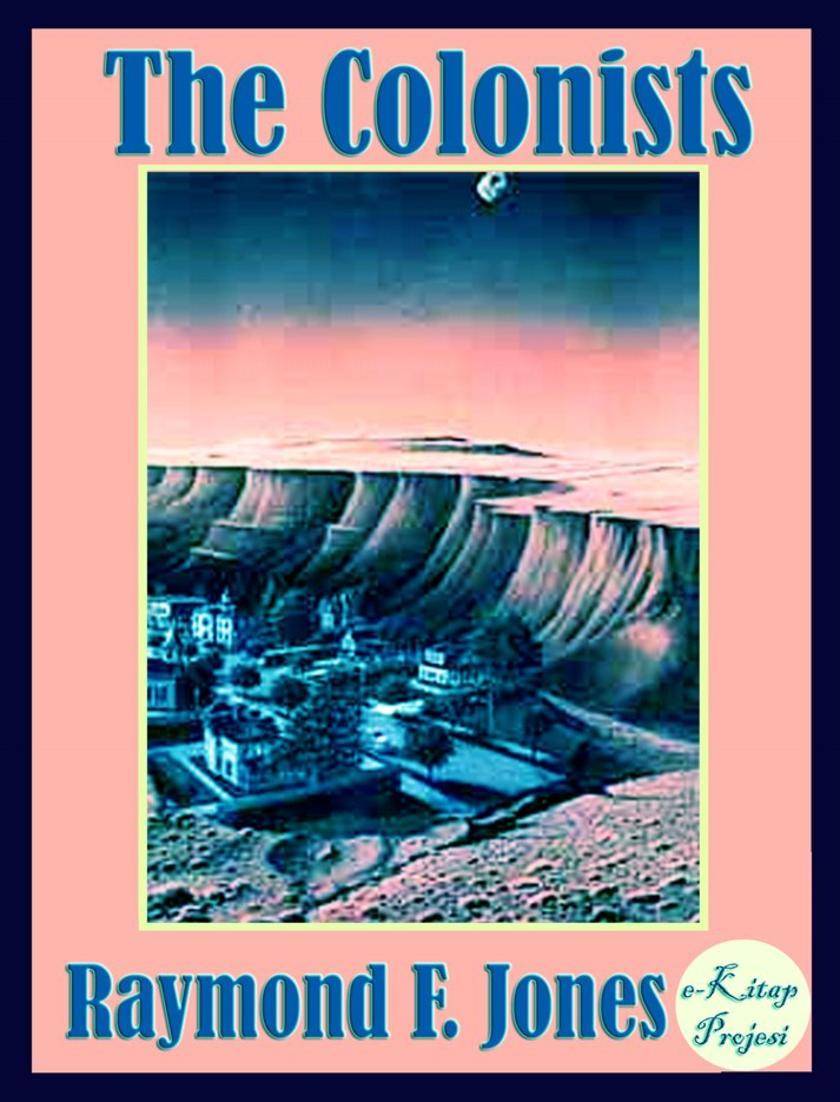
The Colonists
¥9.24
Leonardo Da Vinci, the many-sided genius of the Italian Renaissance, was born, as his name implies, at the little town of Vinci, which is about six miles from Empoli and twenty miles west of Florence. Vinci is still very inaccessible, and the only means of conveyance is the cart of a general carrier and postman, who sets out on his journey from Empoli at sunrise and sunset. Outside a house in the middle of the main street of Vinci to-day a modern and white-washed bust of the great artist is pointed to with much pride by the inhabitants. Leonardo's traditional birthplace on the outskirts of the town still exists, and serves now as the headquarters of a farmer and small wine exporter.Leonardo di Ser Piero d'Antonio di Ser Piero di Ser Guido da Vinci—for that was his full legal name—was the natural and first-born son of Ser Piero, a country notary, who, like his father, grandfather, and great-grandfather, followed that honourable vocation with distinction and success, and who subsequently—when Leonardo was a youth—was appointed notary to the Signoria of Florence. Leonardo's mother was one Caterina, who afterwards married Accabriga di Piero del Vaccha of Vinci. His BirthLeonardo Da Vinci, the many-sided genius of the Italian Renaissance, was born, as his name implies, at the little town of Vinci, which is about six miles from Empoli and twenty miles west of Florence. Vinci is still very inaccessible, and the only means of conveyance is the cart of a general carrier and postman, who sets out on his journey from Empoli at sunrise and sunset. Outside a house in the middle of the main street of Vinci to-day a modern and white-washed bust of the great artist is pointed to with much pride by the inhabitants. Leonardo's traditional birthplace on the outskirts of the town still exists, and serves now as the headquarters of a farmer and small wine exporter. His ArtLeonardo, whose birth antedates that of Michelangelo and Raphael by twenty three and thirty-one years respectively, was thus in the forefront of the Florentine Renaissance, his life coinciding almost exactly with the best period of Tuscan painting.Leonardo was the first to investigate scientifically and to apply to art the laws of light and shade, though the preliminary investigations of Piero della Francesca deserve to be recorded.He observed with strict accuracy the subtleties of chiaroscuro—light and shade apart from colour; but, as one critic has pointed out, his gift of chiaroscuro cost the colour-life of many a noble picture. Leonardo was "a tonist, not a colourist," before whom the whole book of nature lay open. His MindWe can readily believe the statements of Benvenuto Cellini, the sixteenth-century Goldsmith, that Francis I. "did not believe that any other man had come into the world who had attained so great a knowledge as Leonardo, and that not only as sculptor, painter, and architect, for beyond that he was a profound philosopher." Leonardo anticipated many eminent scientists and inventors in the methods of investigation which they adopted to solve the many problems with which their names are coupled. Among these may be cited Copernicus' theory of the earth's movement, Lamarck's classification of vertebrate and invertebrate animals, the laws of friction, the laws of combustion and respiration, the elevation of the continents, the laws of gravitation, the undulatory theory of light and heat, steam as a motive power in navigation, flying machines, the invention of the camera obscura, magnetic attraction, the use of the stone saw, the system of canalisation, breech loading cannon, the construction of fortifications, the circulation of the blood, the swimming belt, the wheelbarrow, the composition of explosives, the invention of paddle wheels, the smoke stack, the mincing machine! It is, therefore, easy to see why he called "Mechanics the Paradise of the Sciences."Leonardo was a SUPERMAN.
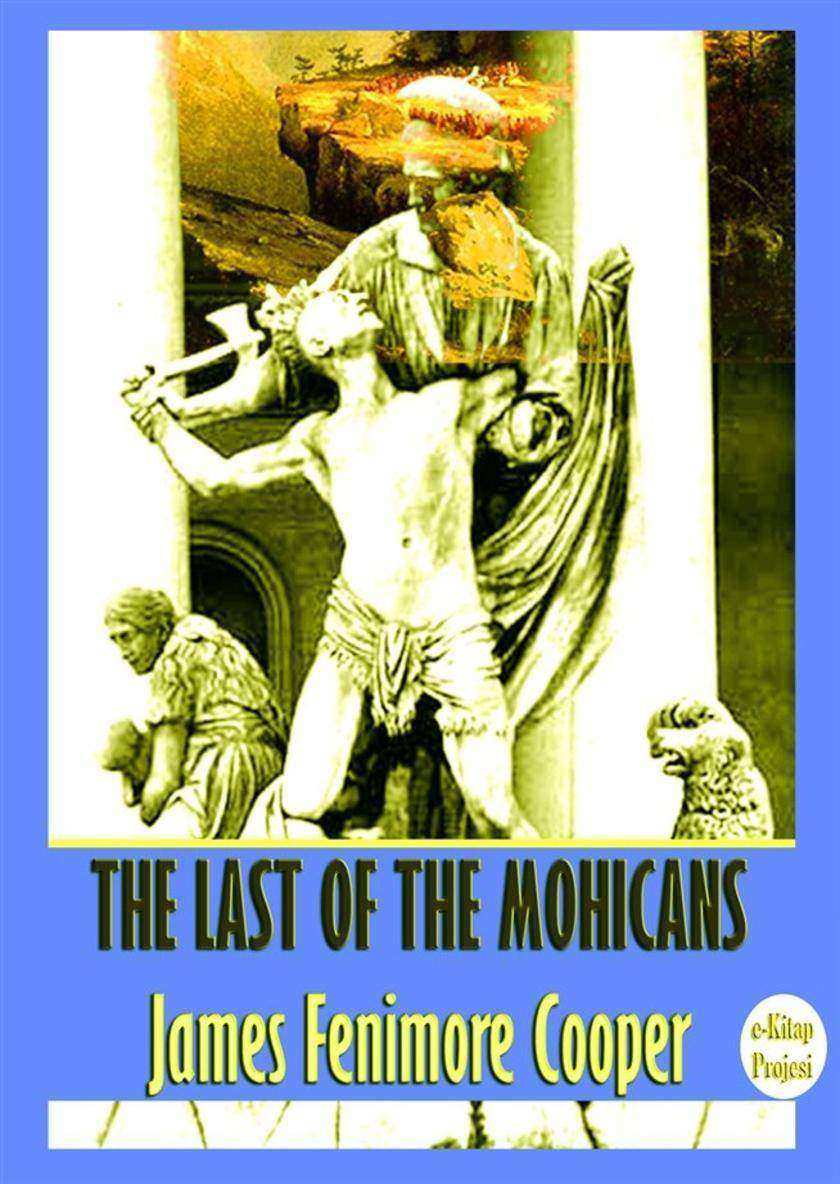
The Last of the Mohicans
¥18.74
ROMANCE and the HISTORY of walled cities are inseparable. Who has not felt this to be so at the sight of hoary ruins lichen-clad and ivy-mantled, that proudly rear their battered crests despite the ravages of time and man’s destructive instincts. It is within walled cities that the life of civilized man began: the walls guarded him against barbarian foes, behind their shelter he found the security necessary to his cultural development, in their defence he showed his finest qualities. And such a city—and such a history is that of Ancient Byzantium, the City of Constantine, the Castle of C?sar. What wonder then that man should endeavour to express by pen and pencil his sense of the greatness and beauty, the Romance of a Walled City such as Constantinople. The more so that a movement is on foot to remove these ancient landmarks of the history of Europe and Asia. True there are other works on this same subject, works by men deeply learned in the history of this fair city, works that bid fair to outlive the city walls if the fell intent of destroying them is carried into execution, and from these men and their works I derived inspiration and information, and so wish to chronicle my gratitude to them—Sir Edwin Pears and Professor van Millingen of Robert College, Constantinople. There are many others too in Constantinople to whom my thanks are due—His Majesty’s Vice-Consul, my host, his colleagues, now my friends, and many others too numerous to mention. They all have helped me in this work, and I am grateful for the opportunity offered me of here recording my thankfulness for their kind offices.B. Granville Baker.
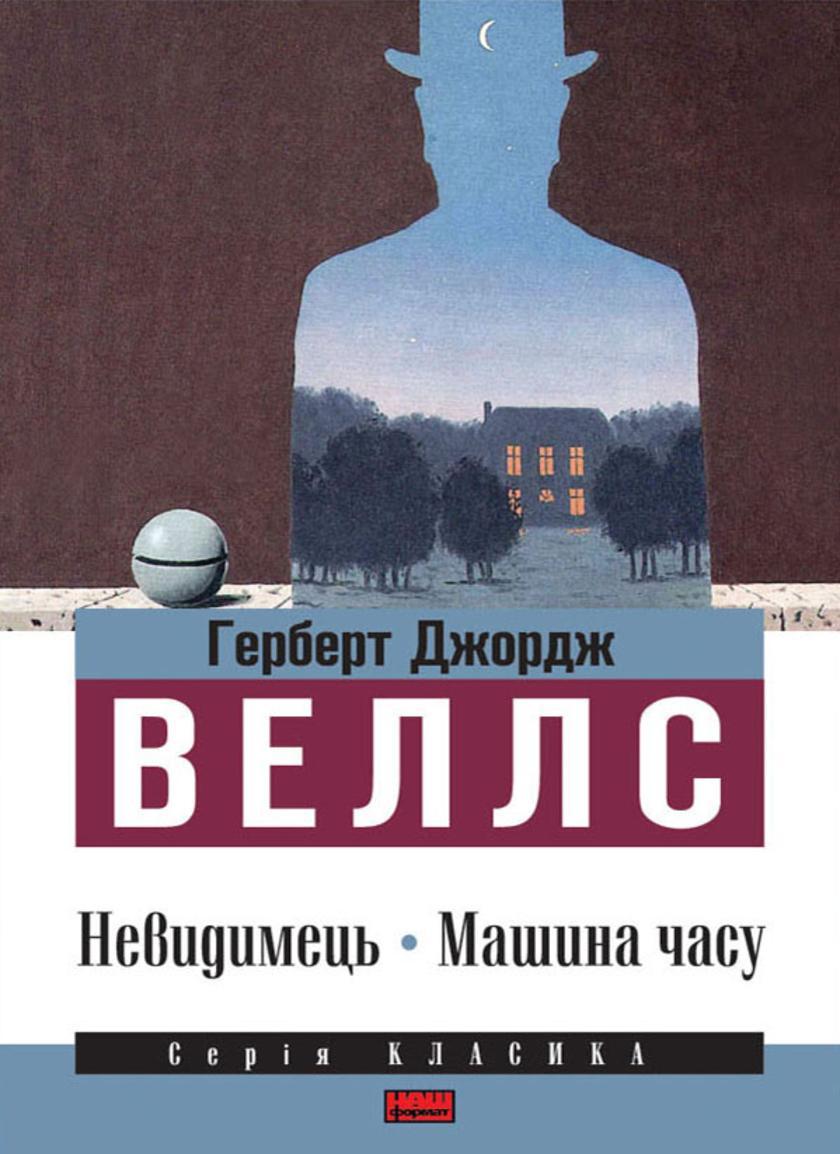
Невидимець. Машина часу
¥5.72
A obra encadeia associa??es entre os valores técnicos da língua e os valores estéticos da literatura. Realiza, ent?o, duas abordagens complementares, defi nida a unidade língua/literatura como uma díade com polos inseparáveis – a língua sustentando um código limitativo e prescritivo; a literatura alimentando a reprodu??o artística do sistema linguístico –, da fus?o de ambas resultando um efeito de sentido.
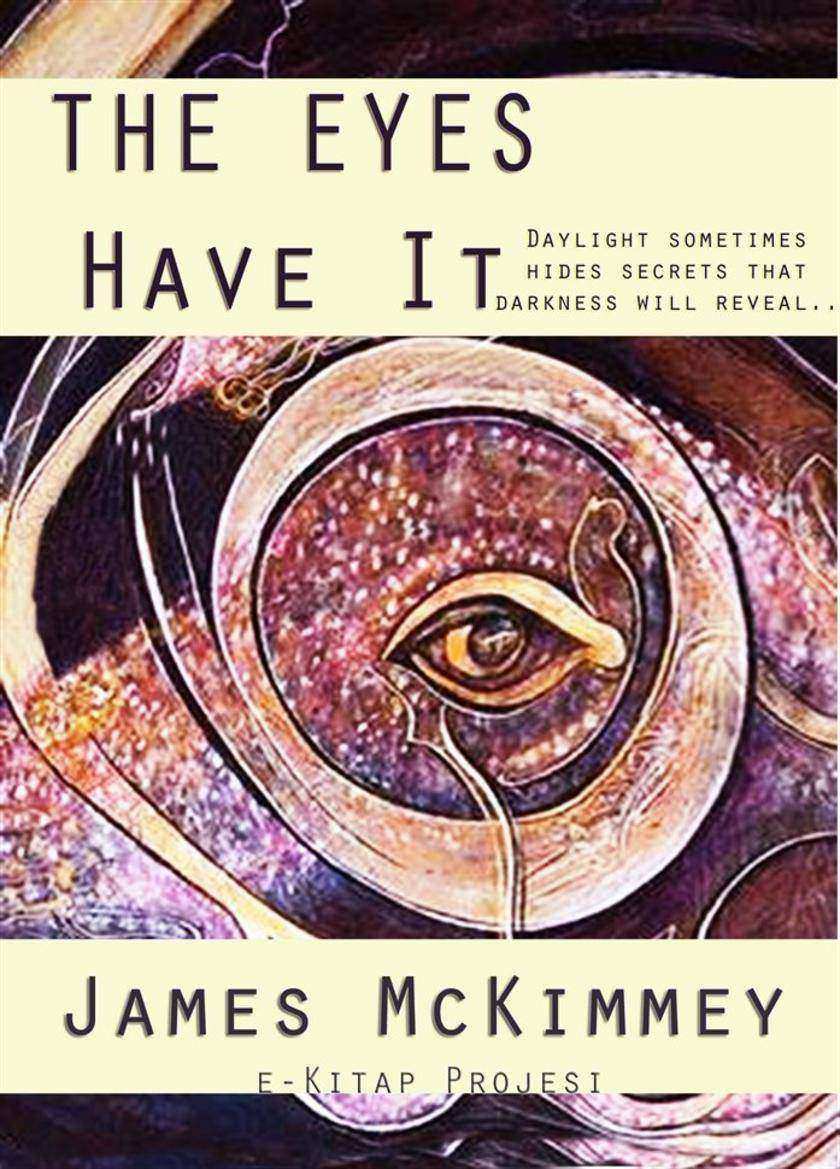
The Eyes Have It
¥4.58
MODERN scientific publications, although they may in some or even many cases equal in their scientific quality the memoirs of earlier workers, do not, on the average, reach a high standard as regards illustration. For instance, in Great Britain botany is pre-eminent in its morphological aspects; it should therefore follow that the illustrations, which form so important a part of such papers, should be beyond reproach. This is not always so, a fact which must be patent to anyone with the slightest critical knowledge who looks through a typical journal. This is a fact much to be regretted, since many of the earlier scientists were accomplished draughtsmen and, indeed, often artists; in this connection the Hookers and Pro-fessor Daniel Oliver may be mentioned. The implication is not intended that there are no good amateur draughtsmen nowadays; there are, and in some cases pos-sessed of great ability. The beautiful work of Church in his Floral Mechanisms may be cited as an example. It may, of course, be argued that any picture which serves to illustrate the particu-lar feature is good enough; this is the contention of one who takes an insufficient pride in his work. A feature worthy of an illustration deserves the best the author can produce, more especially as a literary form is still, fortunately, preserved or, at any rate, aimed at.The reason for indifferent illustrations is primarily due to bad or mediocre draw-ings, or to their unsuitability for the kind of reproduction in view. With regard to the first point: this lack of draughtsmanship often obtains; when education entirely replaces mere instruction, it is to be hoped that all students of science will be trained in the rudiments of drawing. Meanwhile the difficulty can be partly overcome, as will be seen later on, by the simple means of drawing on an enlarged scale, in order that in reproduction reduction can be made. The second reason, the onus of which also falls on the authors, is a lack of knowledge regarding the kind of drawing suitable for the different modes of re-production; this is a very important point, for "technical conditions govern even genius itself."Authors, however, are not always to blame; it would appear that even editors sometimes are wanting in the requisite knowledge, for we have known straight-forward line drawings reproduced by half-tone; in other cases the paper used is unsuitable for the reproduction and, at other times, the printers are at fault. With a view to remedying, at any rate in part, these deficiencies, a course of lec-tures, arranged by the Board of Studies in Botany of the University of London, was delivered in the Lent term of 1913 in the Department of Botany of University College, London. In gratifying the wish expressed by some that these lectures should be given a more permanent dress, the author feels that some apology is necessary, for he can lay no claim to authoritative knowledge of much of the subject-matter; questions relating to the graphic arts and to illustrations, however, have always been of in-terest to him, so that he has tried various experiments, often with disastrous re-sults, and thus has gained some experience. In these matters the author has benefited much through his association with Pro-fessor F. W. Oliver, who, characteristically, has been ever ready to discuss these problems with, and to place his knowledge and experience at the disposal of the author.
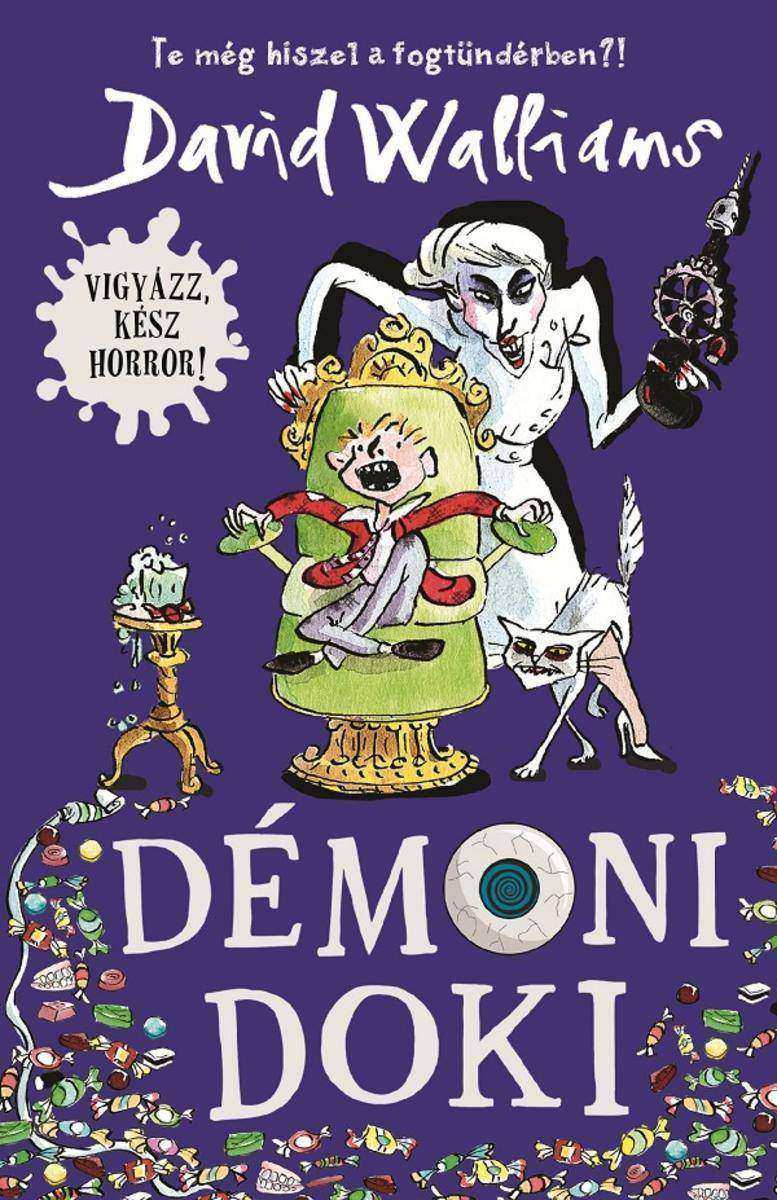
Démoni doki
¥65.97
Németh Miklós és Pozsgay Imre egy k?tetben! Mellettük pedig Mayer Péter, Markovics Ferenc, Arató István, Kajli Béla, Kerezsi István és még sokan mások. Ismert, k?zismert és kevésbé ismert nevek egy beszélget?k?nyvben, amely a munkás?rség t?rténetét ?leli fel. A szerz?k megfogalmazásában: t?bb szempontból sem hagyományos interjúk?tetet készítettünk, vállalva ennek el?nyeit és hátrányait egyaránt. K?sz?nhet? volt ez annak is, hogy a k?nyv megírását megel?zte egy, a testület teljes t?rténetét feldolgozó kétrészes, ?sszesen k?zel egyórás dokumentumfilm elkészítése a Munkás?rség - Egy párthadsereg t?rténete címmel. A munkás?r?k nehéz ládát cipelnek. Amikor letették, hogy megpihenjenek, épp arra j?n János bácsi, a téesz juhásza és megkérdi: Mit cipelnek fiaim? Hadititok!, feleli az egyik munkás?r. ?s nagyon nehéz a láda? Már hogyne lenne nehéz, mikor tele van kézigránáttal?, válaszol az egyik munkás?r. A korabeli viccben és t?bbek emlékezetében is úgy él a Munkás?rség, mint egy kissé esetlen, sokszor id?s embereknek a gy?jt?helye vagy klubja. De a valóságban ez egyáltalán nem így volt. Az '56-os forradalom leverését k?vet?en létrehozott szervezet feladata sokáig kizárólag a rend(szer) védelmének a biztosítása volt. A kádári állam kiépülését k?vet?en kidolgozták háborús, határ?rizeti és polgári védelmi feladataikat is. A kezdetben harminc-, majd hatvanezer f?s párthadsereg létszámát tekintve a korabeli Magyar Néphadseregéhez képest is jelent?s volt! A rendszerváltás során a hatalom részér?l felmerült a testület átmentése is, de erre végül nem került sor. A Munkás?rség felszámolását 1989-ben a teljes ellenzék k?vetelte, leszerelésük jelent?s izgalommal t?lt?tte el a magyar társadalmat. De hogy látták mindezt a korabeli vezet? politikusok, katonák, és nem utolsó sorban maguk a munkás?r?k? Az interjúk?tet erre próbál választ találni.
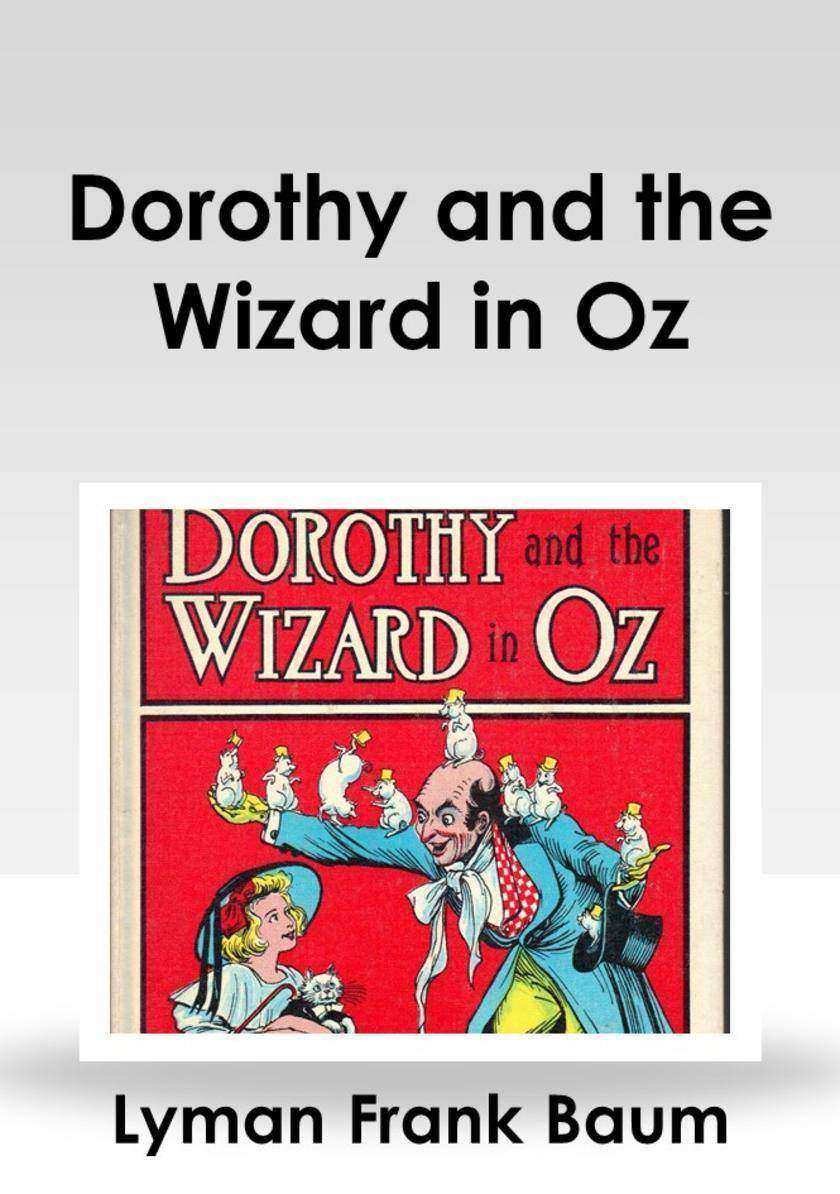
Dorothy and the Wizard in Oz
¥8.67
Kijárat az Adriára cím? nagysiker? munkája után Lovas Ildikó újabb regénye a mai divatos n?irodalommal száll szembe, a test, az érzékiség nyelvét nem radikalizálja tovább, hanem ?visszavesz” bel?le, mivel rendkívüli tudatossággal újra és újra az ártatlanság nyelvén akar szólni. A Spanyol menyasszony az erotikus krimi és a klasszikus lányregény mesteri ?tv?zete. A regény két síkon játszódik, az egyik az én-elbeszél? kiskamaszkoráig vezet vissza, míg a másik a neves orvos-író Csáth Géza feleségének, Jónás Olgának az utolsó napját beszéli el, abból próbálja megfejteni az író és felesége kegyetlenül túlf?t?tt, és tragédiába torkolló kapcsolatát.
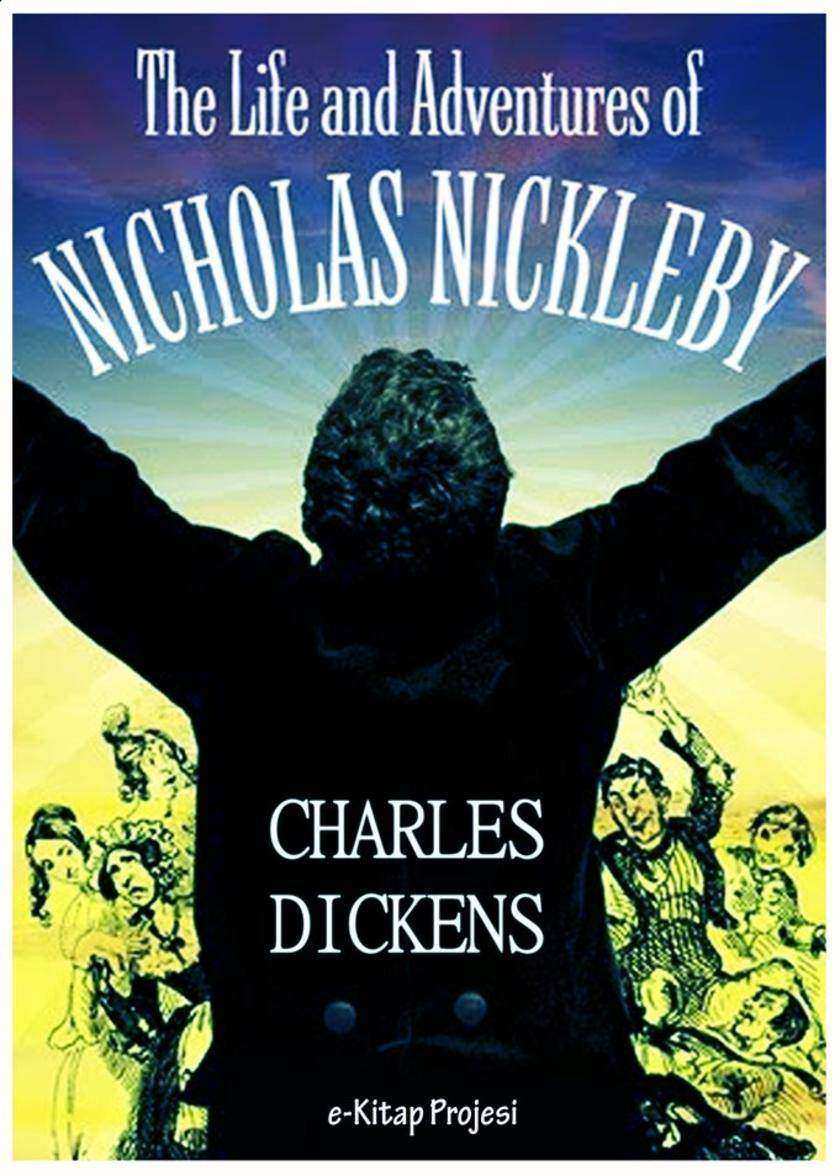
The Life and Adventures of Nicholas Nickleby
¥28.04
The Winter's Tale is a play by William Shakespeare, originally published in the First Folio of 1623. Although it was grouped among the comedies, some modern editors have relabelled the play as one of Shakespeare's late romances. Some critics consider it to be one of Shakespeare's "problem plays", because the first three acts are filled with intense psychological drama, while the last two acts are comedic and supply a happy ending. The play has been intermittently popular, revived in productions in various forms and adaptations by some of the leading theatre practitioners in Shakespearean performance history, beginning after a long interval with David Garrick in his adaptation called Florizel and Perdita (first performed in 1754 and published in 1756). The Winter's Tale was revived again in the 19th century, when the third "pastoral" act was widely popular. In the second half of the 20th century The Winter's Tale in its entirety, and drawn largely from the First Folio text, was often performed, with varying degrees of success. Short Summary of the Tale: John Fawcett as Autolycus in "The Winter's Tale" (1828) by Thomas Charles WagemanFollowing a brief setup scene the play begins with the appearance of two childhood friends: Leontes, King of Sicilia, and Polixenes, the King of Bohemia. Polixenes is visiting the kingdom of Sicilia, and is enjoying catching up with his old friend. However, after nine months, Polixenes yearns to return to his own kingdom to tend to affairs and see his son. Leontes desperately attempts to get Polixenes to stay longer, but is unsuccessful. Leontes then decides to send his wife, Queen Hermione, to try to convince Polixenes. Hermione agrees and with three short speeches is successful. Leontes is puzzled as to how Hermione convinced Polixenes so easily, and Leontes suddenly goes insane and suspects that his pregnant wife has been having an affair with Polixenes and that the child is a bastard. Leontes orders Camillo, a Sicilian Lord, to poison Polixenes. Camillo instead warns Polixenes and they both flee to Bohemia. Furious at their escape, Leontes now publicly accuses his wife of infidelity, and declares that the child she is bearing must be illegitimate. He throws her in prison, over the protests of his nobles, and sends two of his lords, Cleomenes and Dion, to the Oracle at Delphi for what he is sure will be confirmation of his suspicions. Meanwhile, the queen gives birth to a girl, and her loyal friend Paulina takes the baby to the king, in the hopes that the sight of the child will soften his heart. He grows angrier, however, and orders Paulina's husband, Lord Antigonus, to take the child and abandon it in a desolate place. Cleomenes and Dion return from Delphi with word from the Oracle and find Hermione publicly and humiliatingly put on trial before the king. She asserts her innocence, and asks for the word of the Oracle to be read before the court. The Oracle states categorically that Hermione and Polixenes are innocent, Camillo an honest man, and that Leontes will have no heir until his lost daughter is found. Leontes shuns the news, refusing to believe it as the truth. As this news is revealed, word comes that Leontes' son, Mamillius, has died of a wasting sickness brought on by the accusations against his mother. Hermione, meanwhile, falls in a swoon, and is carried away by Paulina, who subsequently reports the queen's death to her heartbroken and repentant husband. Leontes vows to spend the rest of his days atoning for the loss of his son and his queen.
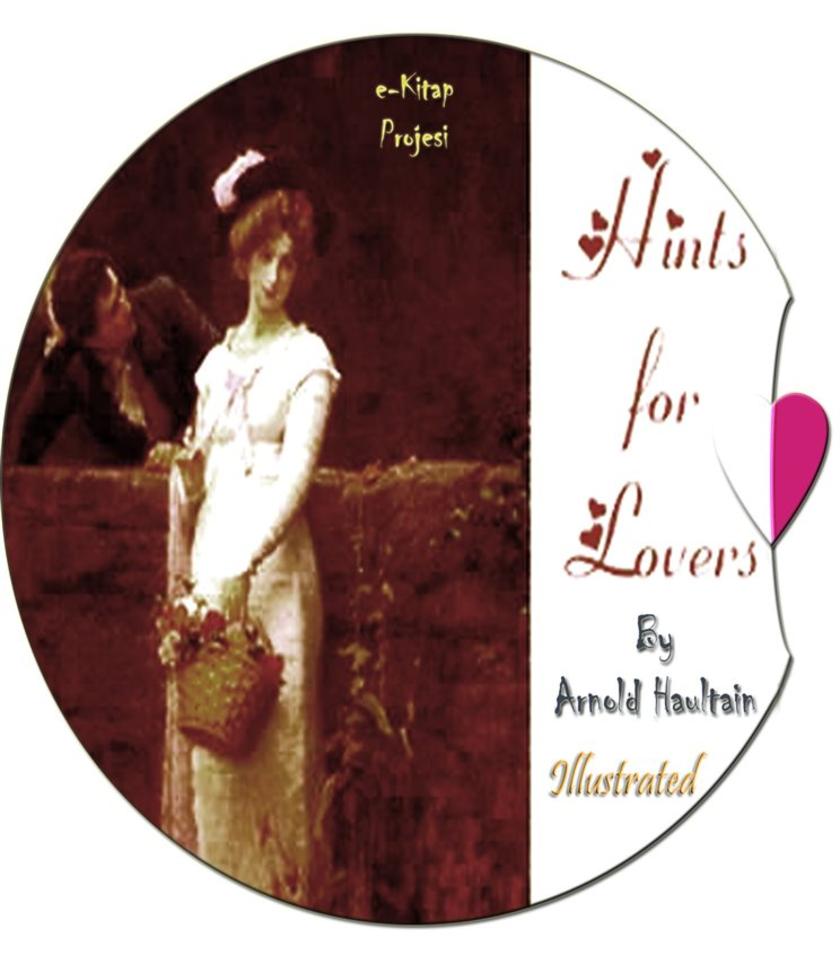
Hints for Lovers: "The Secret Nature and Psychology of Love"
¥18.74
The Aeneid is widely considered Virgil's finest work and one of the most important poems in the history of western literature. Virgil worked on the Aeneid during the last eleven years of his life (29–19 BC), commissioned, according to Propertius, by Augustus. The epic poem consists of 12 books in dactylic hexameter verse which describe the journey of Aeneas, a warrior fleeing the sack of Troy, to Italy, his battle with the Italian prince Turnus, and the foundation of a city from which Rome would emerge. The Aeneid's first six books describe the journey of Aeneas from Troy to Rome. Virgil made use of several models in the composition of his epic; Homer the preeminent classical epicist is everywhere present, but Virgil also makes especial use of the Latin poet Ennius and the Hellenistic poet Apollonius of Rhodes among the various other writers to which he alludes. Although the Aeneid casts itself firmly into the epic mode, it often seeks to expand the genre by including elements of other genres such as tragedy and aetiological poetry. Ancient commentators noted that Virgil seems to divide the Aeneid into two sections based on the poetry of Homer; the first six books were viewed as employing the Odyssey as a model while the last six were connected to the Iliad. Book 1 (at the head of the Odyssean section) opens with a storm which Juno, Aeneas' enemy throughout the poem, stirs up against the fleet. The storm drives the hero to the coast of Carthage, which historically was Rome's deadliest foe. The queen, Dido, welcomes the ancestor of the Romans, and under the influence of the gods falls deeply in love with him. At a banquet in Book 2, Aeneas tells the story of the sack of Troy, the death of his wife, and his escape, to the enthralled Carthaginians, while in Book 3 he recounts to them his wanderings over the Mediterranean in search of a suitable new home. Jupiter in Book 4 recalls the lingering Aeneas to his duty to found a new city, and he slips away from Carthage, leaving Dido to commit suicide, cursing Aeneas and calling down revenge in a symbolic anticipation of the fierce wars between Carthage and Rome. In Book 5, Aeneas' father Anchises dies and funeral games are celebrated for him. On reaching Cumae, in Italy in Book 6, Aeneas consults the Cumaean Sibyl, who conducts him through theUnderworld where Aeneas meets the dead Anchises who reveals Rome's destiny to his son. Book 7 (beginning the Iliadic half) opens with an address to the muse and recounts Aeneas' arrival in Italy and betrothal to Lavinia, daughter of King Latinus. Lavinia had already been promised to Turnus, the king of the Rutulians, who is roused to war by the Fury Allecto, and Amata Lavinia's mother. In Book 8, Aeneas allies with King Evander, who occupies the future site of Rome, and is given new armor and a shield depicting Roman history. Book 9 records an assault by Nisus and Euryalus on the Rutulians, Book 10, the death of Evander's young son Pallas, and 11 the death of the Volscian warrior princess Camilla and the decision to settle the war with a duel between Aeneas and Turnus. The Aeneid ends in Book 12 with the taking of Latinus' city, the death of Amata, and Aeneas' defeat and killing of Turnus, whose pleas for mercy are spurned. The final book ends with the image of Turnus' soul lamenting as it flees to the underworld.
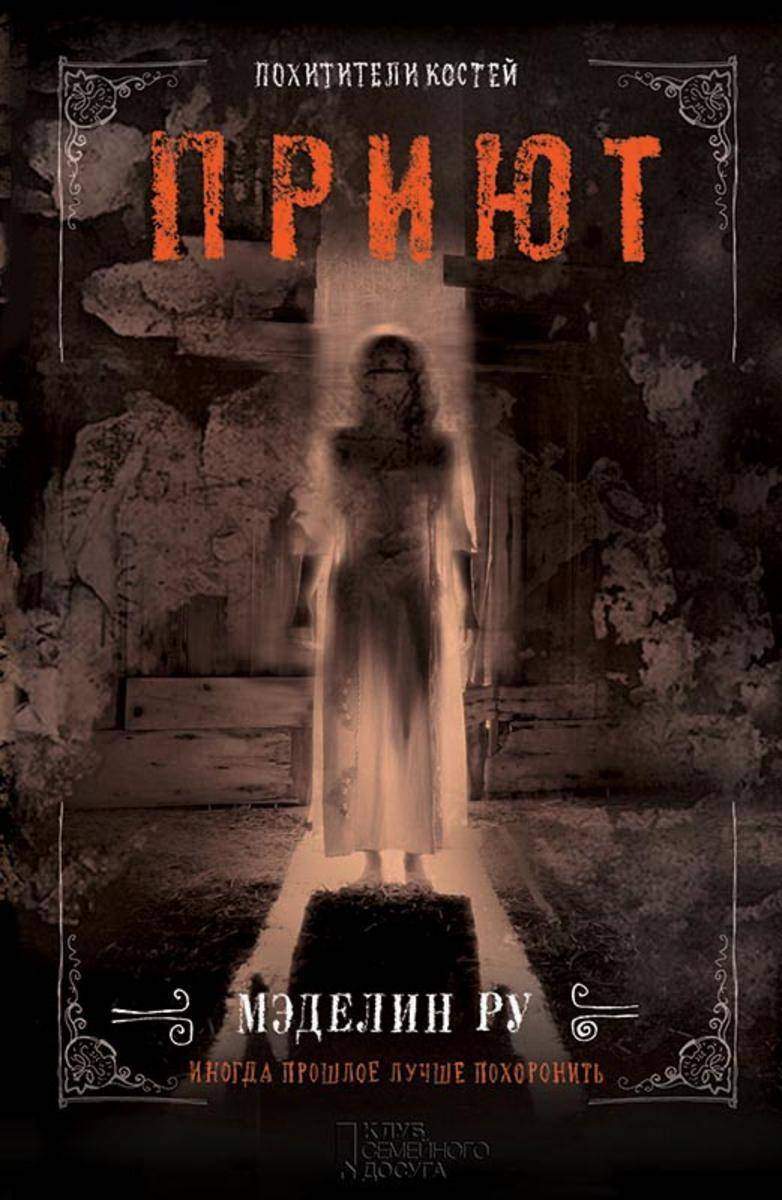
Приют. Похитители костей (Prijut. Pohititeli kostej)
¥26.65
Йшов четвертий р?к св?тово? в?йни. Втомлений под?ями генерал-лейтенант рос?йсько? ?мператорсько? арм?? Павло Петрович Скоропадський, нащадок старовинно? старшинсько? фам?л??, ще не знав, що стане гетьманом незалежно? Укра?нсько? Держави.??Епоха зм?н, яку самовбивчо наближали революц?онери вс?х мастей, перетворилася на апокал?псис, в?йну вс?х проти вс?х, але Скоропадському стало духу взяти на себе невдячну ношу державного буд?вництва. Спроба зак?нчилася ц?лковитим ? оч?куваним провалом, але окрем? починання гетьмана дотривали до наших дн?в: саме йому Укра?на завдячу?, наприклад, Академ??ю наук.

Big Foot: …And Tiny Little Heartstrings
¥40.79
With grime music and Guyanese folk stories, Joseph Barnes-Phillip's semi-autobiographical story is a comic, tragic and honest portrayal of becoming a man. The story follows Rayleigh as he negotiates the tensions of growing up and taking responsibility – to his pregnant girlfriend, to his sick mother, to his church, to the multi-cultural community he grew up in and somewhere in the mix to himself. When the euphoric highs of teenage life in south London collide with his mum's terminal illness, all Rayleigh wants to do it watch anime in his pants and eat indomie. Love, life and masculinity meet head-on as Rayleigh tries to find his feet, torn between the new girl in his life and being there for his mum, while trying not to make the same mistakes as his dad.
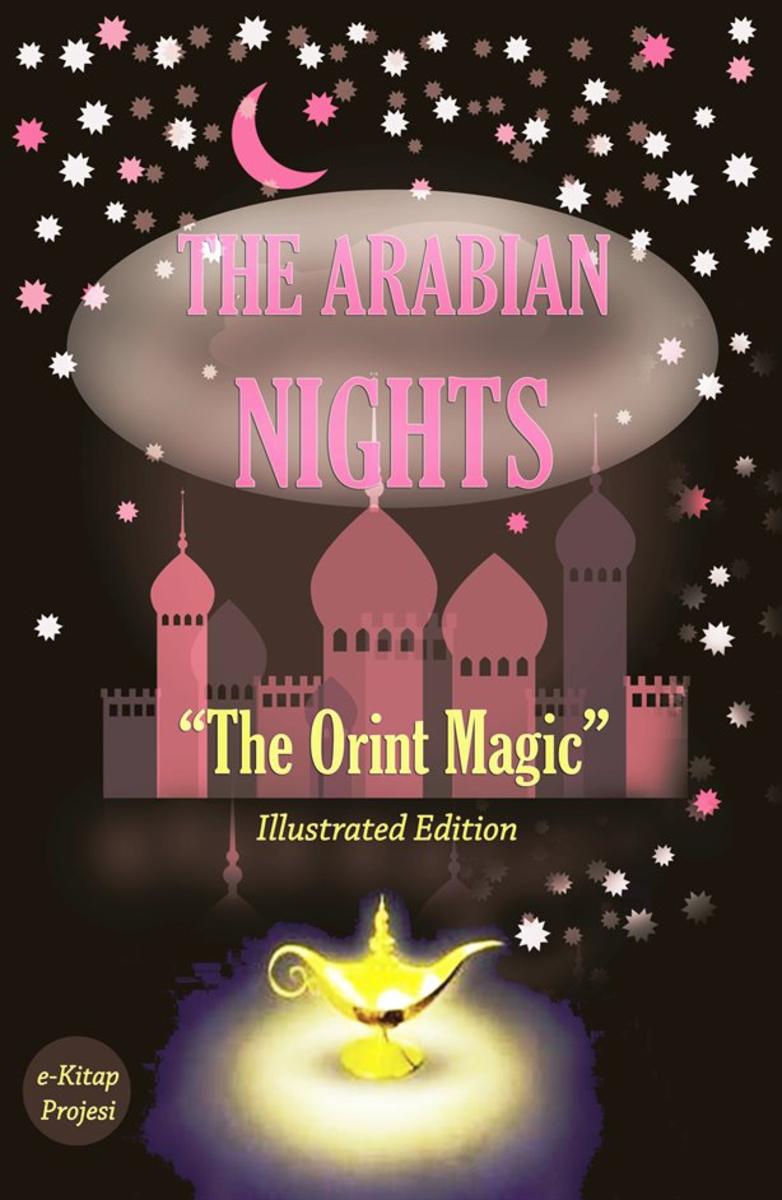
The Arabian Nights: "The Orient Magic"
¥27.55
AUTHOR OF "POOR BOYS WHO BECAME FAMOUS," "GIRLS WHO BECAME FAMOUS," "STORIES FROM LIFE," "FAMOUS AMERICAN AUTHORS," "FAMOUS AMERICAN STATESMEN," "SOCIAL STUDIES IN?ENGLAND," "FROM HEART AND NATURE,"?"FAMOUS MEN OF SCIENCE," ETC. "Do not act as if you had ten thousand years to throw away. Death stands at your elbow. Be good for something while you live, and it is in your power." —Marcus Aurelius. "Every line, every road, every gable, every tower, has some story of the past present in it. Every tocsin that sounds is a chronicle; every bridge that unites the two banks of the river, unites also the crowds of the living with the heroism of the dead."The beauty of the past goes with you at every step in Florence. Buy eggs in the market, and you buy them where Donatello bought those which fell down in a broken heap before the wonder of the crucifix. Pause in a narrow by-street in a crowd, and it shall be that Borgo Allegri, which the people so baptized for love of the old painter and the new-born art. Stray into a great dark church at evening time, where peasants tell their beads in the vast marble silence, and you are where the whole city flocked, weeping, at midnight, to look their last upon the dead face of their Michael Angelo. Buy a knot of March anemones or April arum lilies, and you may bear them with you through the same city ward in which the child Ghirlandaio once played amidst the gold and silver garlands that his father fashioned for the young heads of the Renaissance. Ask for a shoemaker, and you shall find the cobbler sitting with his board in the same old twisting, shadowy street-way where the old man Toscanelli drew his charts that served a fair-haired sailor of Genoa, called Columbus." Florence, Shelley's "Smokeless City," was the ardently loved home of Michael Angelo. He was born March 6, 1475, or, according to some authorities, 1474, the Florentines reckoning time from the incarnation of Christ, instead of his birth. Lodovico Buonarotti, the father of Michael Angelo, had been appointed governor of Caprese and Chiusi, and had moved from Florence to the Castle of Caprese, where this boy, his second child, was born. The mother, Francesca, was, like her husband, of noble family, and but little more than half his age, being nineteen and he thirty-one. After two years they returned to Florence, leaving the child at Settignano, three miles from the city, on an estate of the Buonarottis'. He was intrusted to the care of a stone-mason's wife, as nurse. Living among the quarrymen and sculptors of this picturesque region, he began to draw as soon as he could use his hands. He took delight in the work of the masons, and they in turn loved the bright, active child. On the walls of the stone-mason's house he made charcoal sketches, which were doubtless praised by the foster-parents.
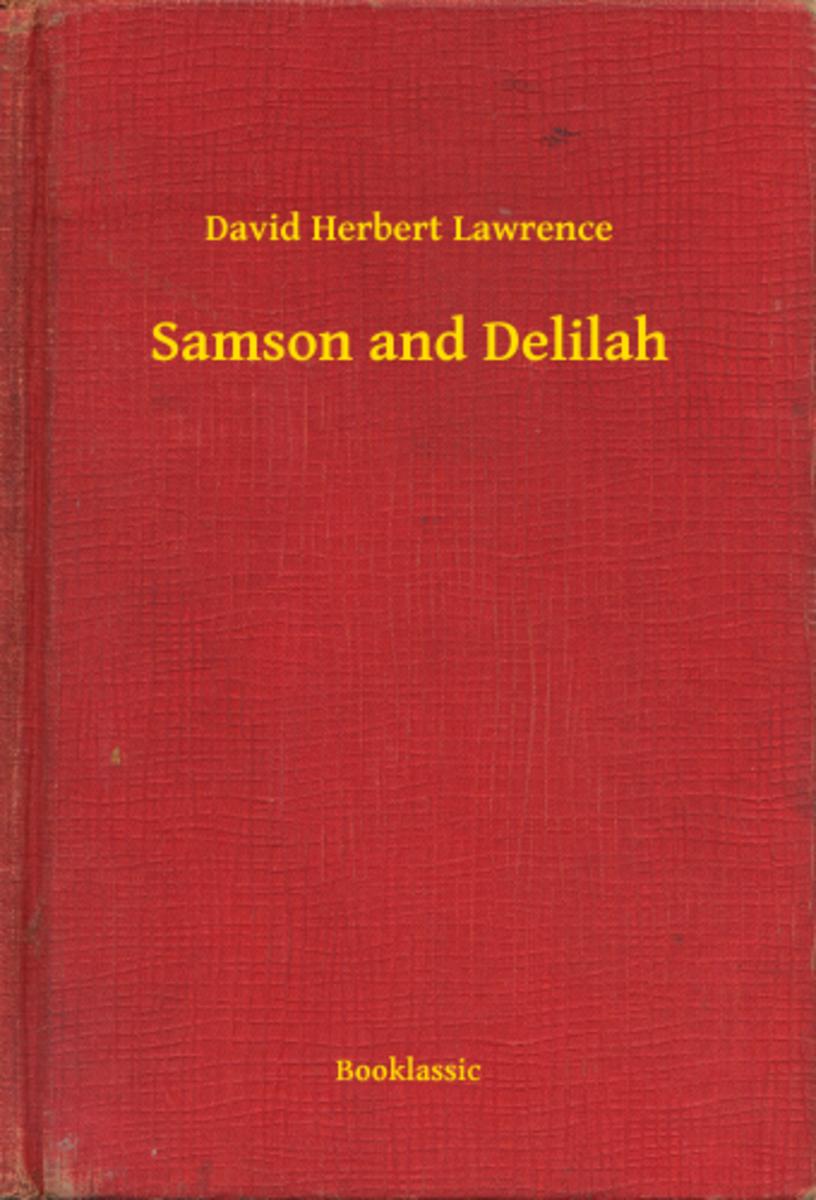
Samson and Delilah
¥8.01
Ervin, ?va és Csaba t?rténete folytatódik. A F?pap és a praetoriánusok serege már nem fenyegetik ?ket, helyettük azonban egy gyilkos klán, egy természetimádó szekta és egy minden dimenziót uralni akaró entitás háborújának frontvonalában találják magukat. A tét pedig nem kevesebb, mint a F?ld j?v?je. Vajon az emberiség ki tud lépni a saját árnyékából, vagy végleg elenyészik? H?seink meg tudnak birkózni a rájuk váró akadályokkal? Bízhatnak-e az új sz?vetségeseikben? ?s egymásban??rmány, árulás, átalakulás és áldozathozatal. A világunk sorsa most d?l el!
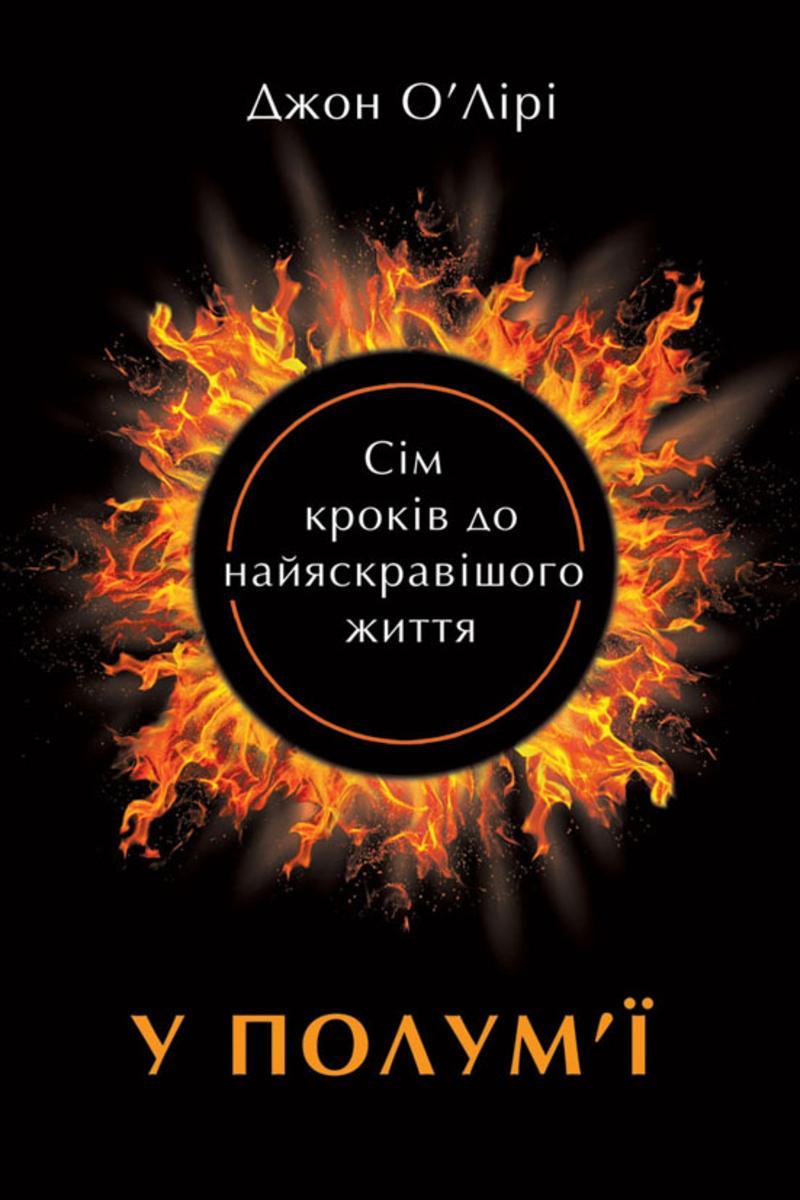
У полум’?: 7 крок?в до найяскрав?шого життя
¥22.74
Aganetha Smart, a 104 éves egykori olimpikon futón? elfeledve él egy nyugdíjasotthonban. Gy?zelmével annak idején mindenkit leny?g?z?tt: a kanadai versenyz? abban az évben nyert aranyat, amikor el?sz?r szerepelhettek n?i atléták az olimpián. Sorsát azonban legalább ennyire meghatározták az els? világháború komor évei, valamint vágya, hogy szembeszálljon korának konvencióival. Egy napon két idegen keresi fel, akik dokumentumfilmet készítenek a régi id?k n?i sportolóiról. A múlt eseményeit megismerve lassan megértjük, miként segített az aranyérem Aganethának megszabadulni a titkokkal terhelt családi ház béklyóitól. ?m a hajdani bajnokn?nek még egy kihívással szembe kell néznie: a filmesek talán nem is azok, mint akiknek mutatják magukat… Carrie Snydert valós t?rténelmi helyzetek inspirálták, hogy megírja fordulatokban gazdag regényét, a becsvágy és a n?i emancipáció t?rténetét, amelyb?l kiderül, hogyan képes határait átlépve a saját életét élni egy n?.
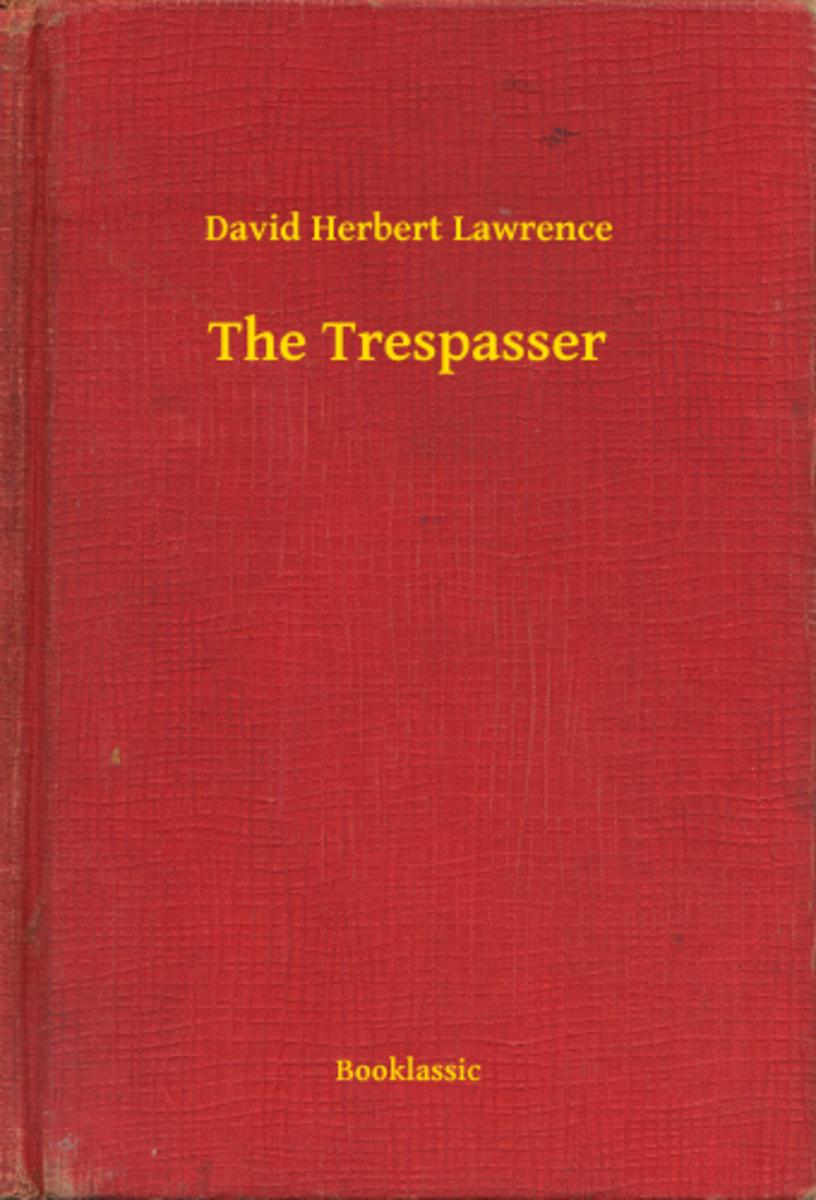
The Trespasser
¥8.01
Egy t?kéletes férfi és egy kül?nleges lány. Vajon mit rejthet a hibátlan álca? William, a milliárdos üzletember Seattle-be utazik, hogy megtalálja elhunyt nevel?apja egyetlen vér szerinti gyermekét, akit ténylegesen megillet a férfira hagyott ?r?kség. Mik?zben piszkos módszereivel a valódi ?r?k?s után kutat, ?sszehozza a sors egy dacos, szemtelen, fiatal lánnyal, aki egyedi szépségével azonnal megbabonázza ?t. William felrúgva saját szabályait, enged Jessica csábításának. Ahogy egyre k?zelebb kerülnek egymáshoz, William ráj?n, hogy Jessica nem egy átlagos lány, a múltját s?tét titkok rejtik, ami után a férfi hiába nyomoz, folyton zsákutcába fut.Mer?ben eltér? személyiségük, életvitelük és a k?ztük lév? korkül?nbség nehéz d?ntés elé állítja ?ket. Megéri ennyit szenvedni egy boldog kapcsolat lehet?sége miatt? Ha fény derül minden titokra, képesek lesznek ugyanúgy nézni egymásra, mint azel?tt?Lilly Shade t?rténete nemcsak arra bizonyíték, hogy nincsenek véletlenek, de arra is, hogy a sors sem mindig kegyes. A t?kéletes nem valódi, és ami annak látszik, csupán álca. Az ilyen álcák pedig a legs?tétebb titkokat rejtegetik.

The Marines in World War II
¥81.67
Iwo Jima, Okinawa, and Tarawa are legendary names on the US Marines’ roll of honour, a testament to the bravery and sacrifice of Marines who answered the call to arms following the Japanese surprise attack on Pearl Harbor in December 1941. Growing to a peak of almost half a million men in 1945, at the beginning of the war the Marine Corps was a small expeditionary force with outdated equipment and an unproven new mission – amphibious assault. The Marines in World War II charts the combat history of the Marines from Wake Island to Okinawa, covering every major battle in between: Guadalcanal, Kwajalein Atoll, Bougainville, Saipan, Guam, and Peleliu, to name just a few. In addition to chronicling these hard-fought battles, the book also examines the important role played by Navajo code talkers, the development of Marine Corps aviation, the little-known role of Marines in the European theatre, and the story behind the iconic “Raising the Flag on Iwo Jima” photograph. Today, the Marines are best remembered as the gritty, determined combat force that matured rapidly, learned hard lessons, took on the committed defenders of the Empire of Japan, crossed the Pacific Ocean island by island, and fought, bled, died – and won.

Glock: The World's Handgun
¥81.67
The Glock series of handguns represents one of the greatest steps forward in pistol design since the introduction of the Colt M1911. Inspired by the Austrian Army’s 1980 request for a new sidearm, the Glock Ges.m.b.H. company set to work designing and developing a revolutionary new weapon that combined reliability, firepower, and the latest in material technology. Within two years it had been adopted by the Austrian Army, but such were its qualities that within a decade the handgun was a dominant presence in the global military, law enforcement, and civilian markets. More than 2.5 million Glocks have been sold to date, to more than 50 nations. Glock: The World’s Handgun follows the evolution of the Glock handgun from concept to market leader, and explains each of the many variants and calibers, starting with the original Glock 17 and working through to the latest fourth generation models, including the 9mm Model 19, .40 caliber Model 22., and subcompact Model 26. Illustrated with more than 200 artworks and photographs, Glock: The World’s Handgun is an expertly written account of one of the most influential handguns in the world today.
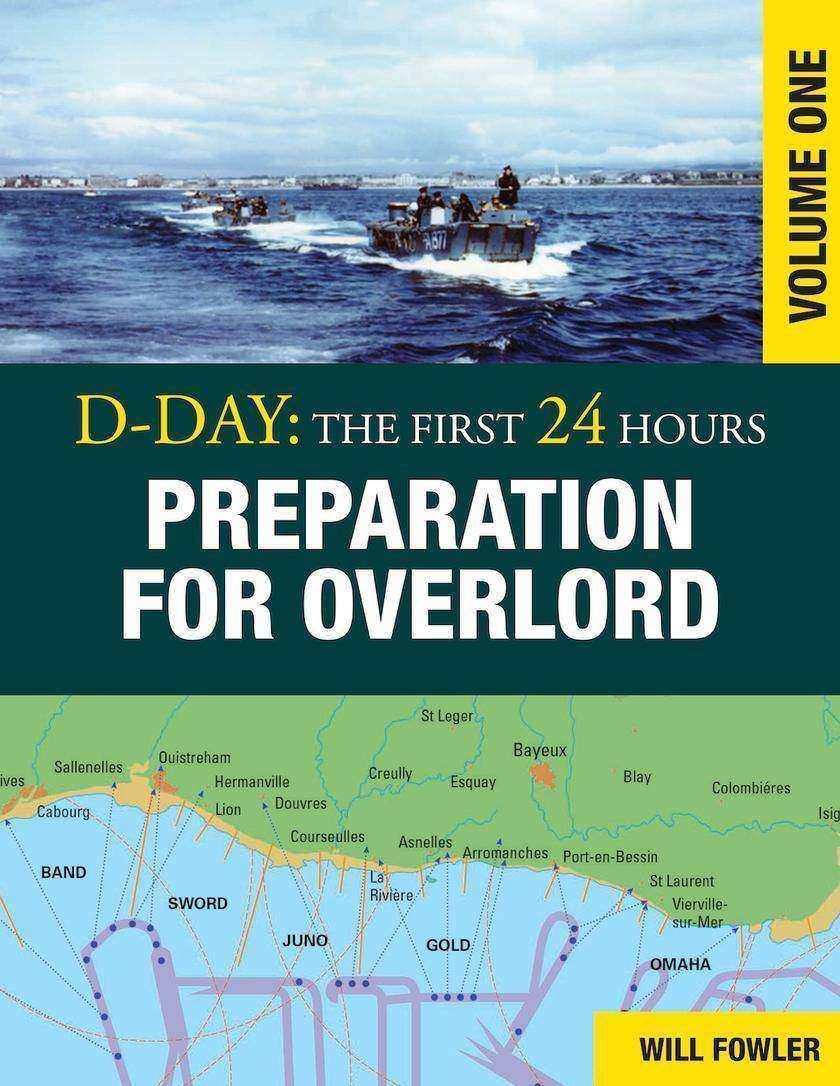
D-Day: Preparation for Overlord
¥40.79
In any military operation throughout history, few 24-hour periods have been as crucial as that of 6th June 1944. With the aid of specially commissioned maps, D-Day: The First 24 Hours series gives the dramatic history of the first 24 hours of the Normandy landings, and explains in detail the events that occurred in each landing zone. In this first volume of the series, the book describes the build-up to the landings themselves, the German preparations for defending the French coastline, and the reasons behind the final Allied decision to attack in Normandy on 6 June 1944. With colour and black & white photographs, the book is a guide to key events in the first 24 hours of the D-Day landings that saw the Allies successfully achieve a foothold in Northern Europe.
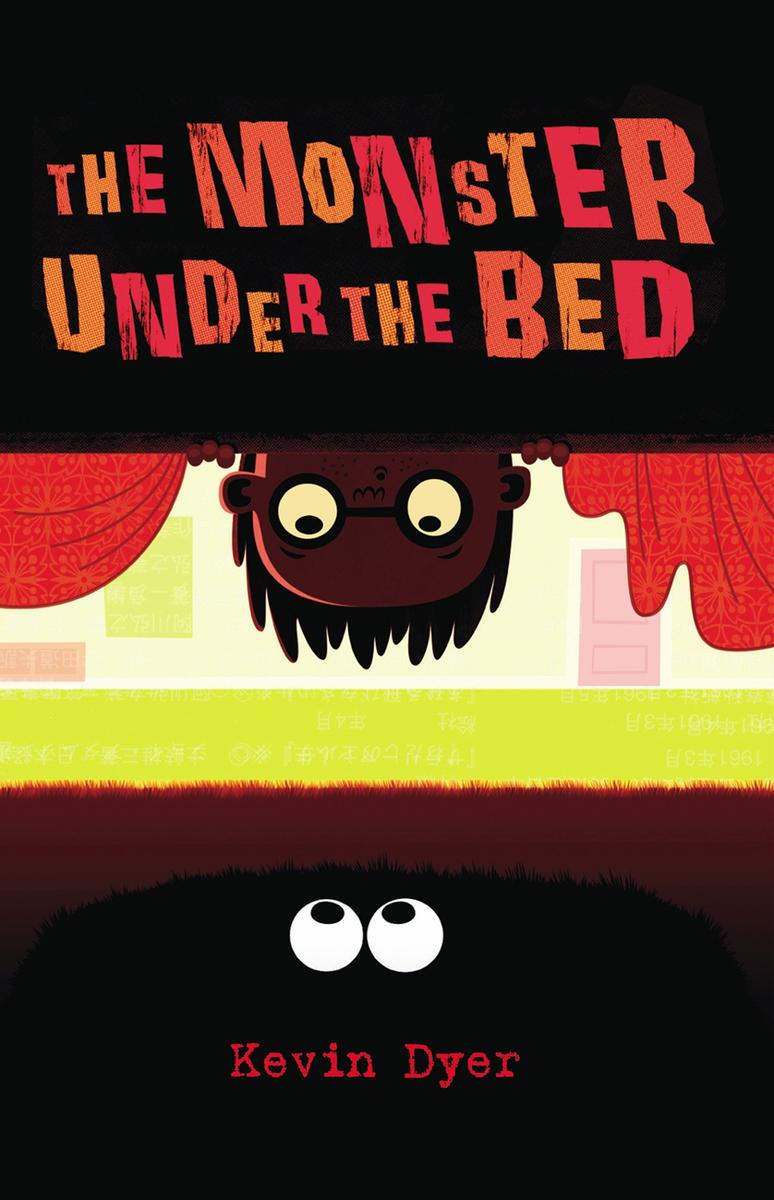
The Monster Under the Bed
¥40.79
The complete playtext for use in schools and youth theatres. Imagine swapping places with a monster for the day. Ben has a BIG problem. His mum is acting grumpy, his best friend Vince has stolen his precious binoculars and his Dad is far, far away… Oh, and there’s a monster under his bed. But when Ben swaps places with the underbed monster, Ben’s life – and his school – is turned inside out and upside down. A funny and thrilling play for children about friendship and facing up to your fears. Suitable for young performers. WINNER OF THE WRITERS’ GUILD BEST CHILDREN’S PLAY AWARD
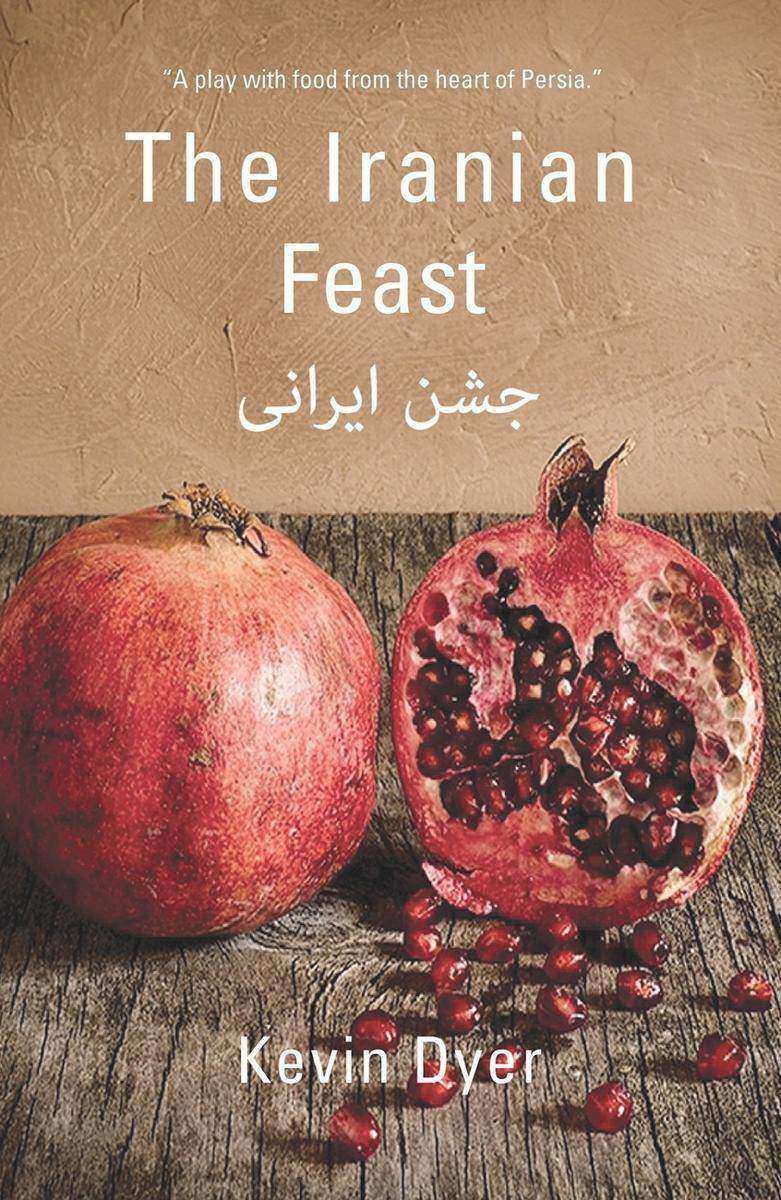
The Iranian Feast
¥40.79
In modern-day Tehran, you can never predict how life will turn out. Part thriller, part cookery lesson, this is the story of a family struggling to deal with the challenges of a regime where secrecy and surveillance are an everyday part of life. Abbas calls together his wife and daughter and their friends and nighbours for an impromptu feast. Going in the pot are fresh herbs, spices, sweet vegetables and Eli’s mother’s secret ingredient…




 购物车
购物车 个人中心
个人中心



